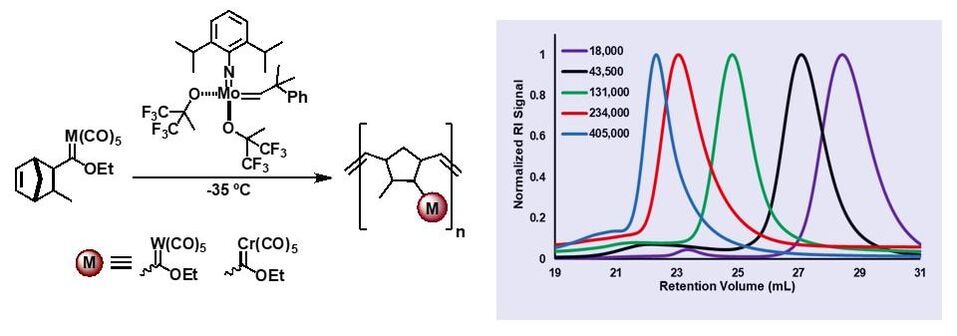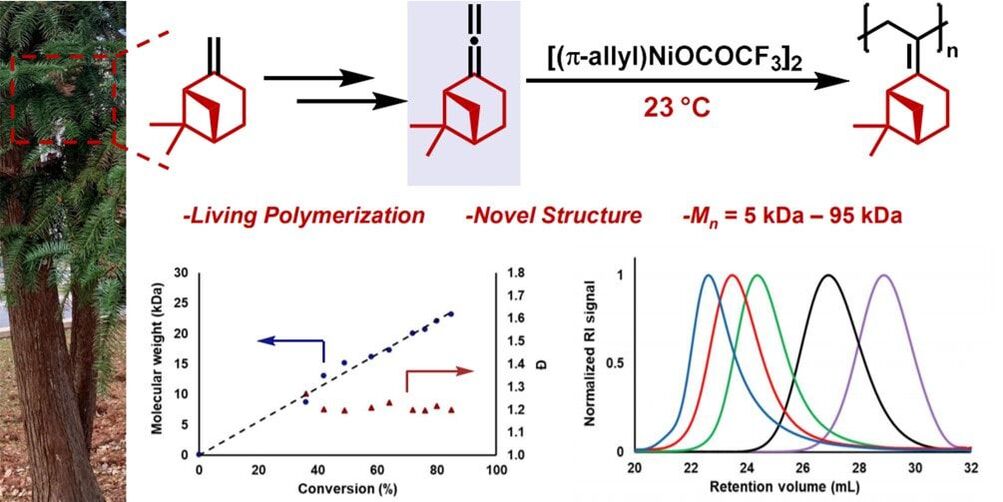Research in our group falls within the purview of polymer science and synthetic methodology. We are interested in developing novel (metallo)polymers that exhibit tunable structures and functions for a variety of applications (e.g. optics, sensing, and catalysis). We are also interested in understanding how reactive intermediates can be applied in the innovative syntheses of complex molecular architectures. Our program integrates elements of physical organic chemistry, polymer science, synthesis, and organometallic chemistry to address both fundamental and applied problems. As such, the group’s interdisciplinary approach to discovery provides burgeoning scientists at all stages of career development with an invaluable skill set.
Metallopolymers
|
Metal-containing polymers are fascinating materials that exhibit an array of useful properties. We are interested in expanding the metallopolymer toolbox through the synthesis of materials that are decorated with unusual (and reactive) organometallic species. For example, polymers that contain Fischer carbene complexes (and related motifs) are enticing targets, given the rich chemical reactivity these moieties display. We explore new strategies for preparing these unique polymers and elucidating their fundamental properties.
|
Main Group Materials
|
Borylated polymers are highly attractive synthetic targets, given their combination of Lewis acidity (which can be leveraged for catalysis or sensing) and chemical reactivity. Our research focuses on developing new polymer scaffolds that leverage boron for various chemosensing applications. We are keenly interested in exploring new strategies for leveraging the reactivity of boron for post-polymerization modifications. Moving forward, we would like to explore the synthesis, reactivity, and physical properties of polymers that are decorated with other main group elements.
|
Cumulenes in Polymer Science
|
Cumulated systems display unique structural and reactivity profiles, but they are relatively underexplored in the context of polymer science. Research in our group seeks to develop methods for leveraging cumulenes in the synthesis and modification of polymeric architectures. For example, we are interested in exploring new strategies for converting biological feedstocks into sustainable materials through cumulation.
|



